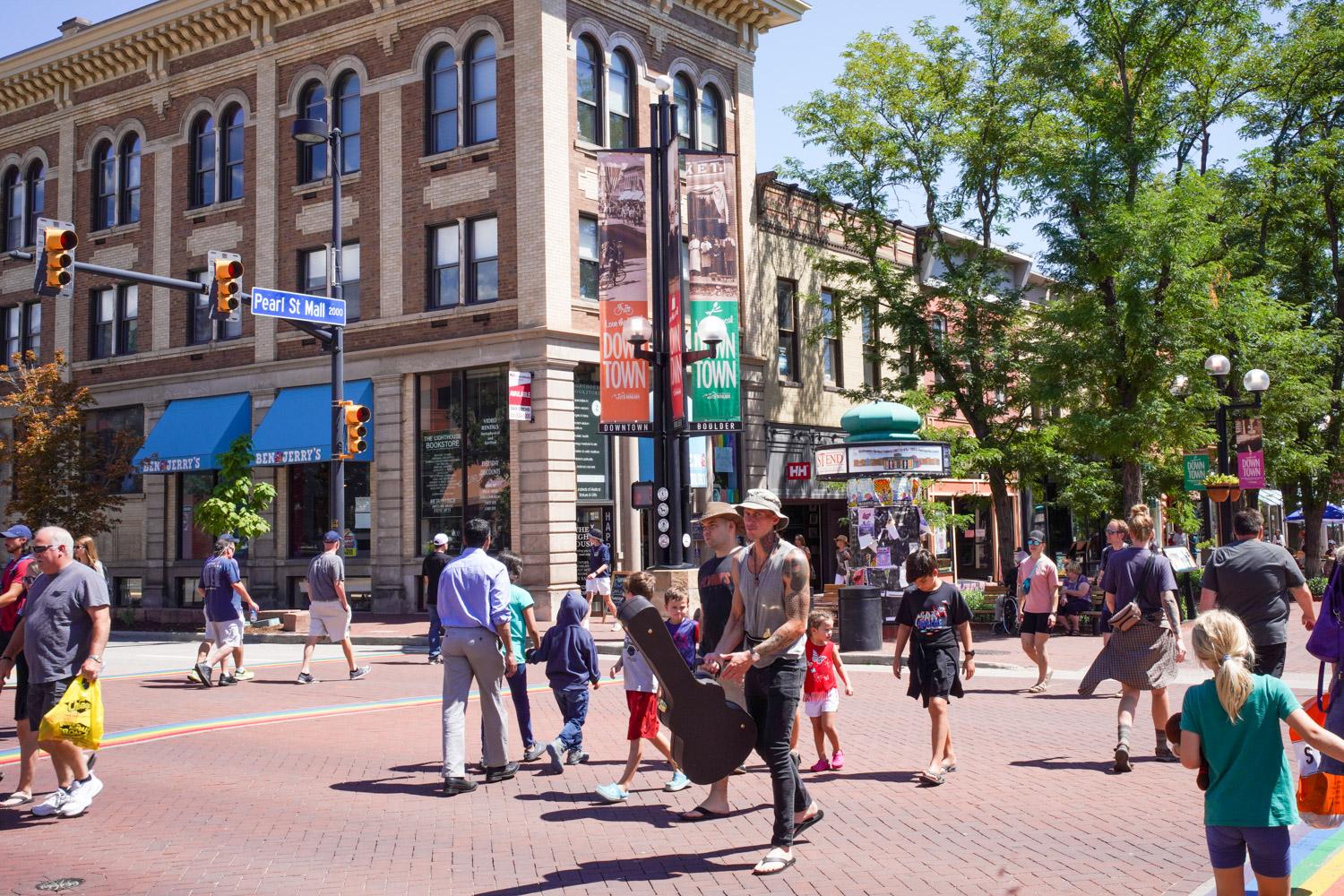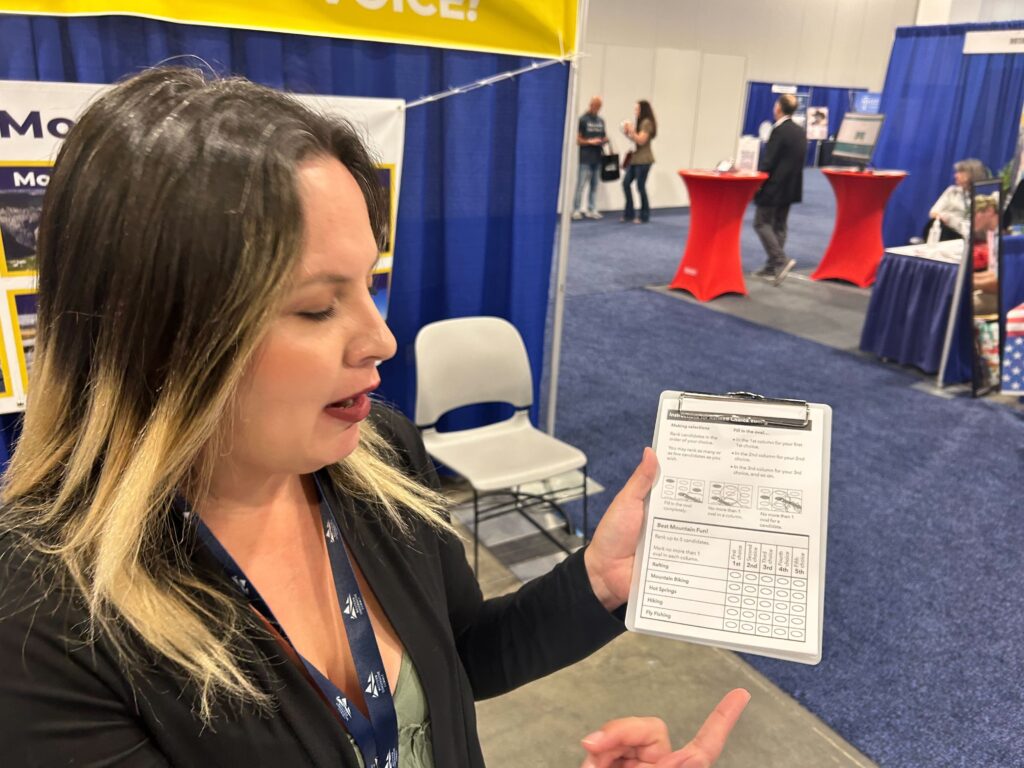
At least three candidates will be on the ballot for mayor of Boulder this November. And for the first time, voters won’t just have to choose just one of them.
The city is debuting a new “ranked choice” voting system. Instead of casting a single vote for a single candidate, voters will instead be asked to rank the candidates — first, second, third choice.
Boulder voters approved the creation of the new system back in 2020, but it’s being used for the first time this year. A new state law has made it easier for local governments to adopt ranked choice, and the Boulder race could be a test case.
How will ranked-choice voting work in Boulder?
The system is meant to allow voters to express their true preferences in races with three or more candidates — rather than worrying that they’ll “throw away” their vote if they choose a candidate who’s unlikely to win.
Boulder is only using ranked choice for its mayoral election, not city council. Once they get their ballots, voters will be allowed to rank as few or as many of the mayoral candidates as they want.
Officials will then count how many voters selected each candidate as their top choice. If one of the candidates got a majority of those “first place” votes — more than 50 percent — they’ll be declared the winner, just like in a normal election.
But if nobody gets a majority, then the ranking would come into play. First, the weakest candidate would be eliminated. And if you voted for that losing candidate — well, now your ballot would instead count for your second-choice candidate.
Linda Templin, executive director of the advocacy group Ranked Choice Voting for Colorado, thinks that it’ll change the dynamic of the Boulder race.
Candidates “have to start comparing and contrasting themselves with the other candidates based on the issues,” said Templin, “They can't resort to personal attacks and be successful at it because they might need second-choice votes to win. And you can't pick those up if you've been slinging mud.”
In other words, candidates can’t necessarily afford to alienate the supporters of their rivals.
The system also has another major side effect: In traditional municipal elections, there often is a second runoff election between the top two candidates. But runoffs aren’t necessary in ranked-choice voting.
So far, three candidates have ensured their slots on the ballot in Boulder’s mayoral election: current Mayor Aaron Brockett and council members Bob Yates and Nicole Speer. There are three other potential candidates who haven’t yet qualified for the ballot, according to the county clerk.
Boulder officials have published information and interactive tools to explain the new process. Election Day is Nov. 7.
Why is ranked choice spreading in Colorado?
Local voters decided to adopt the system in Boulder in 2020. A citizen initiative had pressed for the change, with support from council members, Boulder Beat reported.
The state legislature passed a law in 2021 to make it easier for other communities to jump on board, too. Starting this year, state and county officials have had to upgrade their elections systems to accommodate ranked-choice voting.

The city and county of Broomfield followed, with voters approving the use of the system in November 2021.
Broomfield’s ranked-choice law is in effect now — but it may not actually matter this year. As of this article’s publication, none of Broomfield’s local races had more than two candidates. (If you only have two candidates, there’s no point in ranking them.)
Fort Collins voters have also approved a ranked-choice system to begin in 2025.
Who else is using ranked-choice voting in Colorado?
The small town of Carbondale has allowed ranked-choice voting since 2002 — but it’s never actually had enough mayoral candidates to use the system.
Basalt has similarly had the system for years, but only used it for the first time in 2020 for a three-way mayor’s race. In that case, the rankings still didn’t directly affect the outcome. The winning candidate, Bill Kane, was the top preference of most voters, so there was no need to look at second choices.
Telluride first used ranked-choice voting in a 2011 election, with voters and town officials reporting a smooth experience.
Critics of the idea contend that it could confuse voters, leading to spoiled ballots. Others have argued that it harms moderate candidates since voters might give their “first choice” votes to more extreme candidates — blocking the moderates from advancing, even if they were generally more popular. Voters’ ballots also can be “exhausted” — if they don’t rank every single candidate, and their preferred candidates are eliminated, their ballot may not survive to the final round.
However, other research supports the idea that ranked-choice can lead to more moderate and positive campaigns, among other potential benefits, while the effects on voter turnout were mixed.








